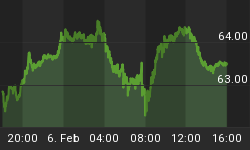Last Monday's Daily Telegraph carried an interview with Jaime Caruana, the General Manager of the Bank for International Settlements (the BIS). As General Manger, Caruana is CEO of the central banks' central bank. In international monetary affairs the heads of all central banks, with the possible exception of Janet Yellen at the Fed, defer to him. And if any one central bank feels the need to obtain the support of all the others, Caruana is the link-man.
His opinion matters and it differs sharply from the line being pushed by the Fed, ECB, BoJ and BoE. But then he is not in the firing line, with an expectant public wanting to live beyond its means and a government addicted to monetary inflation. However, he points out that debt has continued to increase in the developed nations since the Lehman crisis as well as in most emerging economies. Meanwhile the growing sensitivity of all this debt to rises in interest rates is ignored by financial markets, where risk premiums should be rising, but are falling instead.
From someone in his position this is a stark warning. That he would prefer a return to sound money is revealed in his remark about the IMF's hint that a few years of inflation would reduce the debt burden: "It must be clearly resisted."
There is no Plan B offered, only recognition that Plan A has failed and that it should be scrapped. Some think this is already being done in the US, with tapering of QE3. But tapering is having little monetary effect, being replaced by the expansion of the Fed's reverse repo programme. In a reverse repo the Fed gives the banks short-term US Government debt, paid for by drawing down their excess reserves. The USG paper is used as collateral to back credit creation, while the excess reserves are not in public circulation anyway. Therefore money is created out of thin air by the banks, replacing money created out of thin air by the Fed.
Interestingly Caruana dismisses deflation scares by saying that gently falling prices are benign, which places him firmly in the sound money camp. But he doesn't actually "come out" and admit to being Austrian in his economics, more an acolyte of Knut Wicksell, the Swedish economist, upon whose work on interest rates much of Austrian business cycle theory is based. This is why Caruana's approach towards credit booms is being increasingly referred to in some circles as the Mises-Hayek-BIS view.
With the knowledge that the BIS is not in thrall to Keynes and the monetarists, we can logically expect that Caruana and his colleagues at the BIS will be placing a greater emphasis on the future role of gold in the monetary system. Given the other as yet unstated conclusion of the Mises-Hayek-BIS view, that paper currencies are in a doom-loop that ends with their own destruction, the BIS is on a course to break from the long-standing policy of preserving the dollar's credibility by supressing gold.
Caruana is not alone in these thoughts. Even though central bankers in the political firing line only know expansionary monetary policies, it is clear that influential opinion in many quarters is building against them. It is too early to talk of a new monetary regime, but not too early to talk of the current one's demise.















